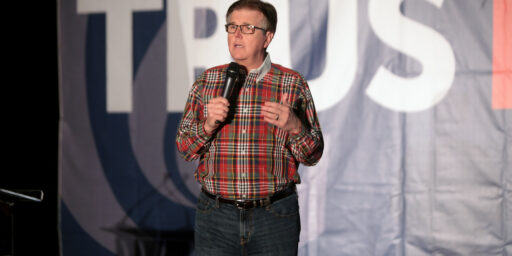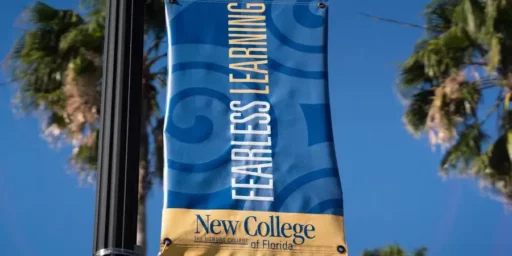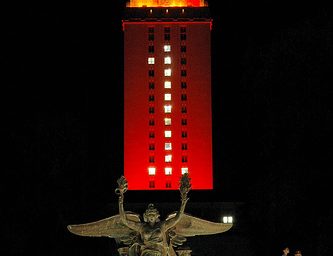How Not to Get Tenure
The experiences of two well-known academics denied tenure at Chicago provide some clues.
Sean Carroll, a Cal Tech physicist denied tenure a few years back at Chicago writes a somewhat bitter guide on “How To Get Tenure at a Major Research University.” While it applies somewhat less to other fields and lesser schools, much of it rings true to someone who has taught political science at much less prestigious schools.
- Don’t be too well known outside the field. I hate to say this, but the evidence is there: if you have too high of a public profile, people look at you suspiciously. Actual quote: “I’m glad we didn’t hire Dr. X; he spends too much time in the New York Times and not enough time in the lab.” And that’s the point — it’s not that people are jealous that you are popular, it’s that they are suspicious you care about publicity more than you do about research. Remember the Overriding Principle.
- Don’t write a book. This follows partly from the above; if you’re contemplating writing a popular book, and aren’t sure whether it will negatively impact your chance of getting tenure, you’re probably too far gone for this list to even help you. But it’s worth a separate bullet point because even textbooks are beyond the pale. (Probably the worst thing I personally did was to write Spacetime and Geometry.) You might think that a long volume filled with equations that provides a real service to the community would help your case. It won’t; it will hurt it. Why? Because while you were writing that book, you weren’t doing research. Catching on? (Obviously I’m writing from a field where research is conveyed solely through papers, not books; if you’re in a field where the serious research is contained within scholarly books, then by all means write all the scholarly books you can.)
[…]
- Don’t worry about teaching, leadership, organizing, etc. I don’t think being good at these things actively hurts you, although I did once hear a senior faculty member say that he was negatively predisposed to candidates who had good teaching evaluations. (He was joking, I think.) Why? Because you’re spending time on something that isn’t research. But generally it won’t hurt, it just won’t help. You will typically be told (as I was) something like “teaching isn’t really important, but if your case is very close, it can help put you over the top.” Everyone agreed my case was very close, and my teaching was among the best in the department; it didn’t help. The point is simple: this stuff is not research.
- Choose your hobbies wisely. This is a bit more subjective, but I think there is some truth here. Even the highest-pressure departments in the world don’t think that faculty members can’t have any hobbies outside their work. But here is the paradox: you are better off if your hobbies are nothing like your work. Permissible hobbies include skydiving, playing guitar, or cooking. Suspicious hobbies include writing of any sort (novels, magazine articles, blogs), programming or web stuff, starting a business, etc. Why? Because there’s a feeling that this kind of activity represents time that could be spent on research. I don’t think blogging has quite the stigma it once did, although I have heard senior faculty members say they would never hire someone with a blog. But it’s a symptom of a willingness to spend your intellectual energies on something other than doing research.
[…]
- Don’t dabble. Another slightly counter-intuitive one. You might think that, while most of your research work is in area A, the fact that you wrote a couple of papers in area B will be taken as positive evidence of your breadth and intellectual strength. Very wrong. What will actually happen is that your work in area B will be compared to the best people in the world who spend all their time thinking about area B, and you will probably come up wanting. Even worse, it will be taken as evidence that your interests may wander over time — so that, whereas you were hired to be an expert in area A, maybe in a few years you won’t be doing that at all. Kiss of death. Deep down, there is a strongly anti-intellectual strain within academia; you were hired to work in a specialty and that’s what they expect you to do. Once you get tenure, of course, you can do whatever you want; so it’s important that the department be reassured that you don’t want to do anything else.
I’m reminded of Dan Drezner, who was denied tenure in political science at Chicago around the same time. He violated all of these rules. He noted at the time:
The very first words I wrote on this blog were: “I shouldn’t be doing this. I’ll be going up for tenure soon.” This is a theme that I’ve touched on several times since then. The point is, I can’t say I didn’t go into this with my eyes open.
That said, if one assumes that the opportunity cost of blogging (e.g., better or more scholarship) was the difference between tenure and no tenure – an unclear assertion at best – then it’s a tough call. From a strict cost-benefit analysis, one could argue that the doors that blogging opened could have been deferred for a few years in return for the annuity of a tenured position at Chicago. That said, if I did things only for the money, I never would have entered the academy in the first place. And I’ve enjoyed the psychic rewards of blogging way too much to regret my choice.
The good news for Dan is that he was scooped up by the Fletcher School at Tufts University less than a month after the post as a tenured associate professor. And made full professor there in short order. It turned out that a premier public policy school was a better fit than a premier department of political science for someone with Dan’s diverse interests and desire to be a public intellectual.
And, while Carroll didn’t have quite the happy landing that Dan did–he’s a “senior research associate” rather than a tenured professor–I’d certain mark his career as wildly successful. He’s at one of the premier physics departments on the planet, has two books out, and constantly appears on television and in popular magazines. It may not be the path he envisioned when he was completing his PhD at Harvard but he’s living the life of the mind at the highest level, making the arcane world of physics accessible to a lay audience, and I’d imagine having a pretty good time doing it.







Overall an amusing and not terribly surprising read 😛
And why I am NOT looking for jobs in academia for when I finish my PhD this year…
For what it’s worth I’m seriously looking at an academic career in Computer Science and none of the things said above would seem to be true of the department as far as I’ve seen. Most of the tenured professors seem to have side projects within the topic that they work on. I have heard that good teaching won;t help but bad teaching will hurt, at the same time leadership and so on seems valued. Writing textbooks seems to be encouraged or at the very least tolerated.
Point being- it would seem these things vary depending on the subject matter and possibly location.
@Tlaloc: Carroll himself says it probably is only really true in the hard sciences and specifically at schools that think of themselves as being in the top 10 of their field. But I saw much the same thing in departments of political science at “teaching schools.”
Then again, I have a good friend who is one of the top young music professors in the country, having been choral director at George Washington and is now tenured at Minnesota. He has published at least two textbooks–something that would simply be unachievable, not to mention inadvisable for a political scientist at that point in a career–and is lauded for it. It wouldn’t surprise me if some of the more vocational majors–the arts, computer science, business, law–would value practical work more than the purely academic ones.